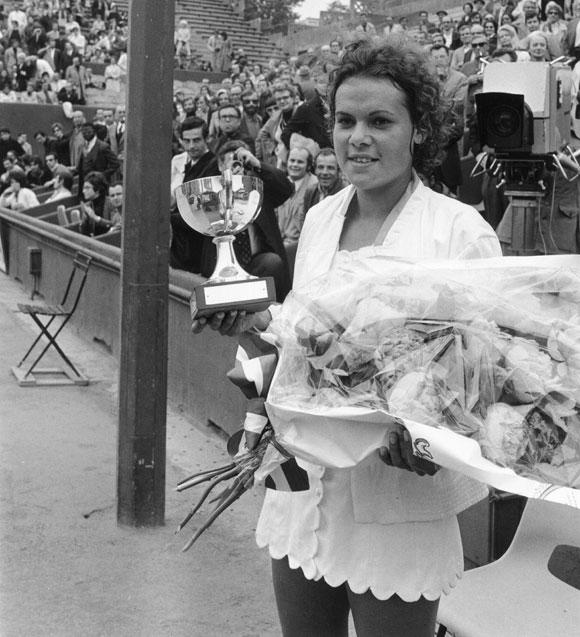
Just a few players have pocketed the singles title at the French Open without dropping a set. Bikash Mohapatra reveals the elite list in the toughest of four majors.
It is considered as the toughest of the four majors.
As far as tennis is concerned, it is arguably the toughest physical challenge.
While playing on clay is in itself a tough ask, many opine that it is the additional week that makes it tough for many players to sustain.
It, therefore, comes across as no surprise that many great champions have the French Open trophy missing from their cabinets. Jimmy Connors, Pete Sampras, Boris Becker, Stefan Edberg, Maria Sharapova, Venus Williams... the list is endless.
Even though negotiating the fortnight on the red clay and winning the tournament is an achievement in itself, few players in the open era have register comprehensive wins at Roland Garros in a particular year, giving away little en route to the title.
Simply put, they have been dominant. Rediff.com draws out the elite list of players, male and female, who have pocketed the singles title at the French Open without dropping a set, a superhuman feat to say the least.
Evonne Goolagong Cawley (1971)
From beating unheralded South African qualifier Joan Koudelka 6-3, 6-1 in the opening round to beating countrywoman Helen Gourlay 6-3, 7-5 in the final, Goolagong didn't drop a set in six matches in the tournament.
The Australian, seeded third that year, accounted for 1967 champion Francoise Durr in the quarter-finals amongst others en route.
Incidentally that was the lone occasion Goolagong pocketed the clay court slam.
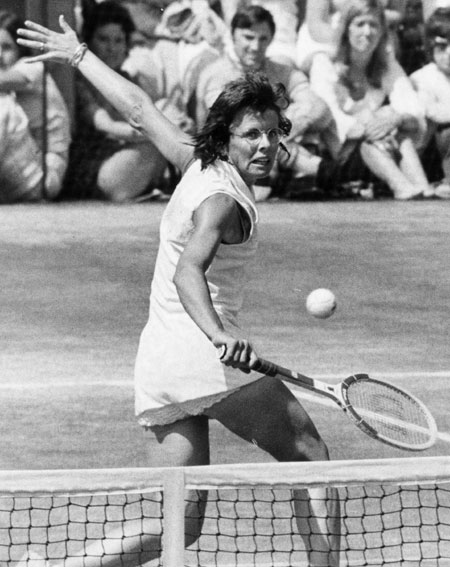
Billie Jean King (1972)
It was Billie Jean King's turn to sweep past every challenge.
The American beat Virginia Wade (in the quarters) amongst other to move into the final without breaking much sweat.
In the decider King, seeded third, faced top seed and defending champion Evonne Goolagong Cawley. Coincidentally the Australian hadn't dropped a set en route to the final either.
However, she was no match for the American in the final, losing 3-6, 3-6.
The triumph that year remains King's lone one in the women's singles event at Roland Garros.
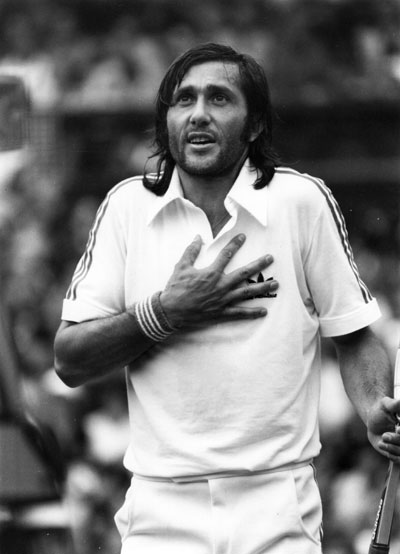
Ilie Nastase (1973)
Ilie Nastase's first singles title at the French Open -- he lost the 1971 final to Jan Kodes -- also happened to be his last.
However, the fact that it was won in some style made the triumph memorable.
The Romanian didn't drop any of the 19 sets he played in the tournament, scoring a comprehensive 6-3, 6-3, 6-0 win over Yugoslavia's Nikola Pilic in the final.
Nastase was the first man to achieve the feat at Roland Garros, and the second ever in the open era.
He had a spectacular 1973, winning 17 tournaments and ending the year as the first ever No.1, the ATP ranking being introduced for the first time that year.
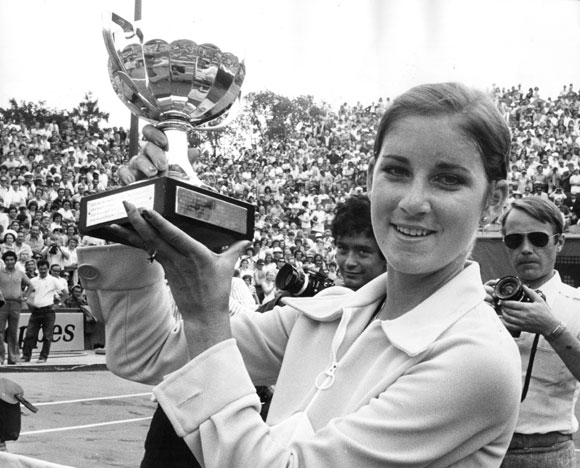
Chris Evert (1974)
The most successful woman singles player ever at Roland Garros in the Open Era, Evert's maiden triumph on the red clay in Paris was achieved in some style.
Having come tantalizingly close to the title a year earlier, eventually falling to the legendary Margaret Court in three tight sets, the American was keen to have another go at the title.
Evert steamrolled past the opposition in the early rounds before thrashing Olga Morozova 6-1, 6-2 in the final. The win gave the American her maiden Grand Slam title, having fallen short in her previous three finals.
Evert would go on to win the French Open on six more occasions and finish her career with an impressive haul of 18 major singles titles.
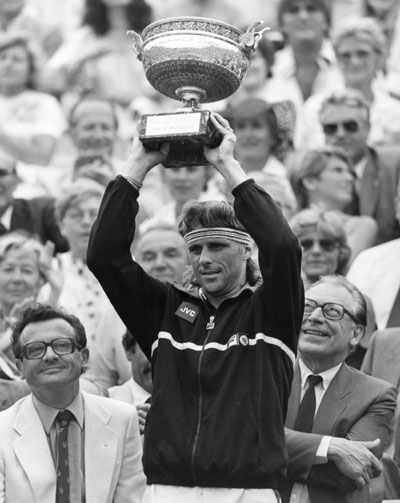
Bjorn Borg (1978, 1980)
The first player in the open era who dominated on the red clay in Paris, Bjorn Borg helped himself to six French Open titles.
More importantly, he lost just two matches at Roland Garros in his entire career -- both to Italian Adriano Pannatta.
Even though each one of the Swede's six triumphs was memorable, two of them were comprehensive.
In the 1978 edition, Borg took advantage of a favourable draw to steamroll past the opposition to set up a showdown with defending champion Guillermo Vilas.
The Swede was equally ruthless in the final, thrashing the Argentine in straight sets 6-1, 6-1, 6-3 to win for the third time in Paris.
For those into stats, six of the 21 straight sets that Borg won in the tournament were bagels (6-0) and that included the semi-final rout of Corrado Barazzutti -- the Italian was allowed only one game.
Two years later, Borg repeated his feat, racing through a tough draw before putting out good friend Vitas Gerulaitis in the final.
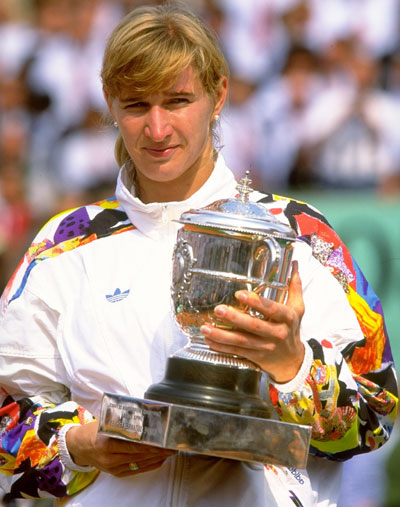
Steffi Graf (1988)
In 1987, Roland Garros had served as the stage for Steffi Graf's first ever major title. A year later, the German returned to defend her title in Paris and did so in a comprehensive manner.
Graf was ruthless early on. The German's toughest assignment was her semi-final encounter against Gabriela Sabatini, the fourth seed. The Argentina fought hard but Graf managed to squeeze through 6-3, 7-6 (3).
Nathalia Zvereva was up next and she was no match. In the final that lasted only 32 minutes, Graf won 6-0, 6-0 in what still remains the shortest ever Grand Slam final ever, as well as the only ever double bagel.
The German recorded a total of six bagels (6-0 sets) during her seven matches and dropped only 20 games out of the 84 she played in completing her second step to what eventually turned out to be a Calendar Year Golden Slam.
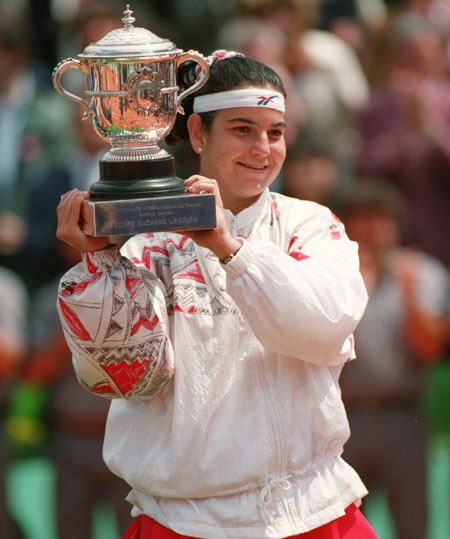
Arantxa Sanchez Vicario (1994)
In the 1989 final, Arantxa Sanchez Vicario had surprised, rather shocked, two-time defending champion Steffi Graf to win her first French Open.
Five years later, she returned to Paris to win her second. From thrashing Argentine Florencia Labat 6-4, 6-1 in the first round to beating German Anke Huber 6-3, 6-2 in the fourth round, the Spaniard broke no sweat.
The quarter final against Frenchwoman Julie Halard was tougher than expected, Sanchez Vicario eventually coming through (6-1, 7-6), but the semi-final witnessed a fairly comprehensive 6-3, 6-1 win over compatriot Conchita Martinez.
The Spaniard was given a helping hand by her final opponent Mary Pierce, who upset top seed and defending champion Steffi Graf in the second semi-final.
Sanchez Vicario, seeded second, never lost focus in the final, scoring a straight forward 6-4, 6-4 win over the Frenchwoman.
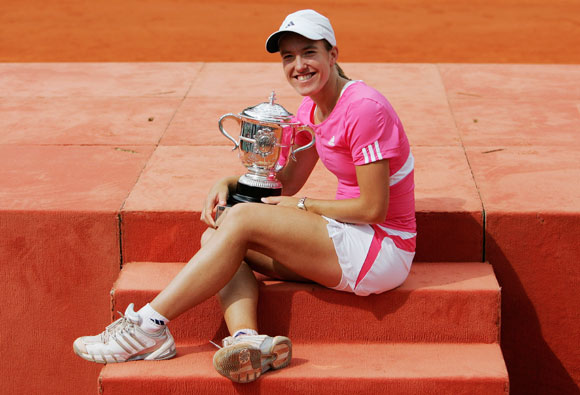
Justine Henin (2006, 2007)
Arguably the dominant female player in Paris in the last decade, Justine Henin won the French Open on four occasions.
Coming into the 2006 edition as the defending champion, the Belgian was at her dominant best.
Seeded fifth, Henin scored a fluent 6-1, 6-4 fourth round win over 2004 champion Anastasia Myskina of Russia before sweeping past two-time finalist and compatriot Kim Clijsters 6-3, 6-2 in the semis.
In Russian Svetlana Kuznetsova, Henin had a formidable opponent in the final. But the Belgian won 6-4, 6-4 to defend her title without dropping a set.
A year later, Henin repeated the feat, beating former champion Serena Williams (6-4, 6-3) in the quarters, Jelena Jankovic (6-2, 6-2) in semis and first time finalist Ana Ivanovic (6-1, 6-2) in the decider.
The 2007 triumph was Henin's third consecutive French Open title as well as the last time she won the tournament.
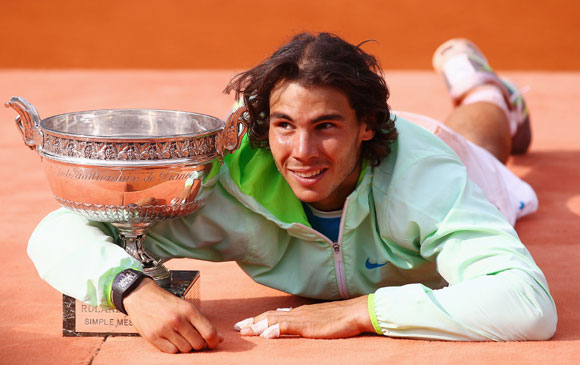
Rafael Nadal (2008, 2010)
No player in recent years has dominated the clay courts in general and the French Open in particular, as Rafael Nadal.
The fact that the Spaniard has lost just once at Roland Garros is testimony of his dominance.
While all his six title wins in Paris have been memorable, in both 2008 and 2010, Nadal won without dropping a set.
In 2008, the Spaniard bludgeoned his way to the last four, thrashing compatriots Fernando Verdasco and Nicolas Almagro en route.
His semi-final against Novak Djokovic was expectedly a tough one but Nadal still won in three sets (6-4, 6-2, 7-6). The Spaniard slaughtered rival Roger Federer (6-1, 6-3, 6-0) in the decider to win the tournament for the fourth time.
Two years later, Nadal benefitted from a favourable draw to make it to the final without breaking a sweat.
Standing between the Spaniard and the trophy was Robin Soderling, the man who had consigned Nadal to his lone defeat in Paris in the previous year.
The Swede had done Nadal a favour by taking out defending champion Roger Federer in an earlier round en route to his second straight final. However, the Spaniard was in no mood to return the favour.
A 6-4, 6-2, 6-4 thrashing of the seventh seeded Swede not only helped Nadal avenge his loss in 2009 but also enabled him pocket his fifth French title.
The Spaniard successfully defended the title last year and going into the tournament this year remains the firm favourite to win a record seventh title.